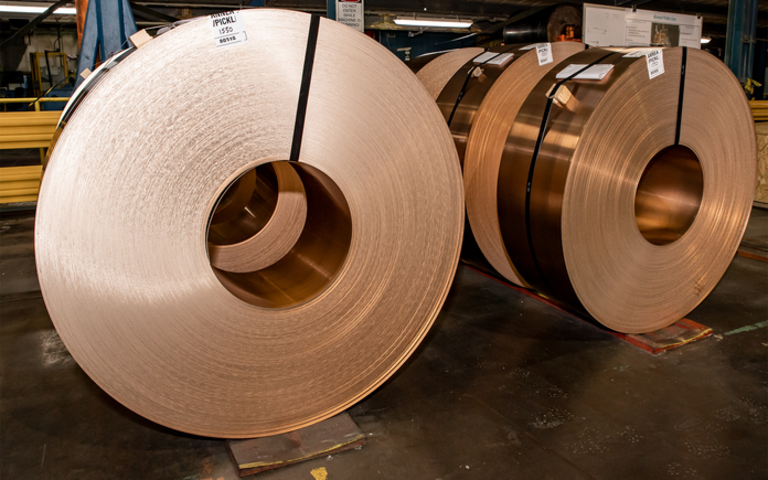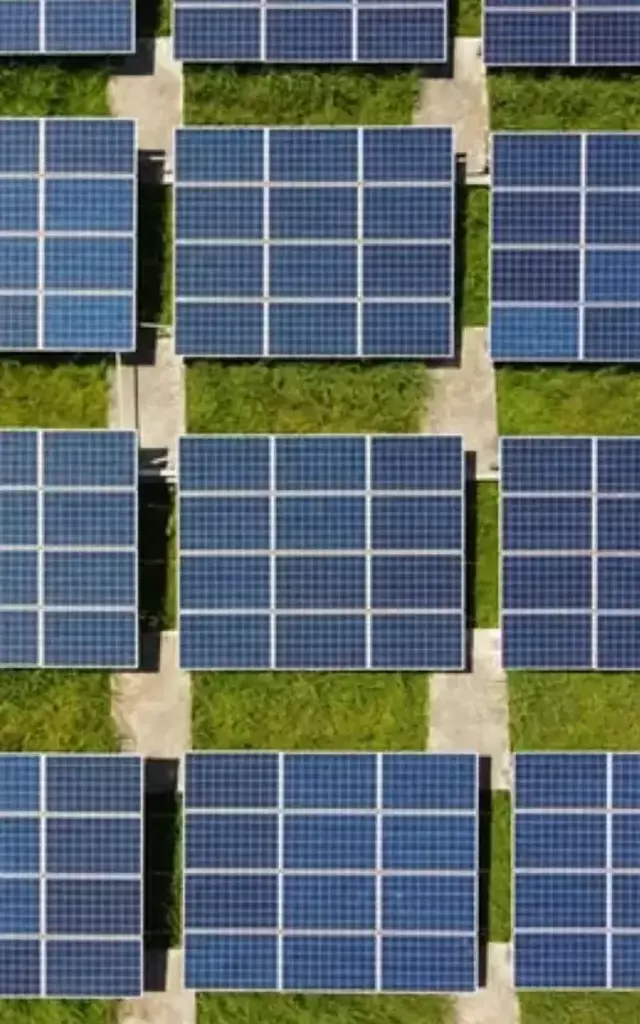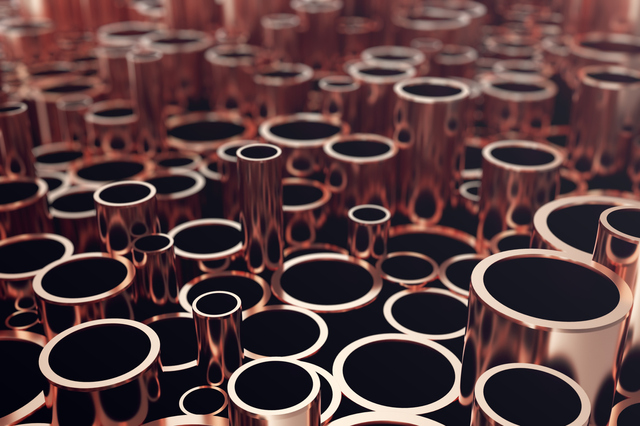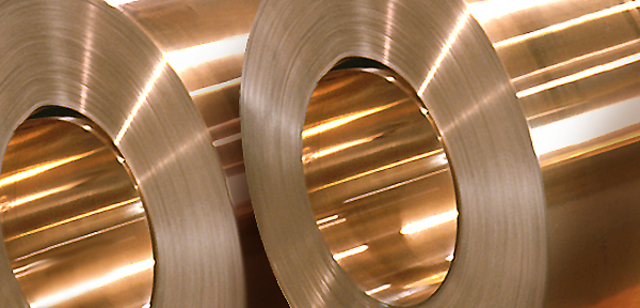All copper-beryllium (CuBe) alloys offer a combination of conductivity, strength, hardness and corrosion resistance. We manufacture copper-beryllium rod, bar, wire, tube, plate, strip, forgings and extrusions in different compositions to meet specific property requirements for harsh operating environments.
When high conductivity is your top requirement, consider the following products from Materion:
ALLOY 3, 10, 10X and 310
Materion's Alloy 3, Alloy 10, Alloy 10X and Alloy 310 copper-beryllium (CuBe) materials are ideal for a range of industries, including the automotive, oil and gas, industrial and telecom and server markets. They offer high electrical and thermal conductivity with yield strength variation based on alloy chemistries.
Alloy 3 (UNS C17510), a copper-nickel-beryllium alloy, provides good strength with high electrical and thermal conductivity, good resistance to stress relaxation and good elevated temperature strength. Alloy 3 is engineered for excellent performance in the automotive, telecom and oil and gas industries.
Alloy 10 (UNS C17500), a copper-cobalt-beryllium alloy, combines moderate yield strength, up to 140 ksi, with electrical and thermal conductivity that is 45 to 60 percent that of pure copper.
Alloy 10X, a copper-cobalt-beryllium-zirconium alloy, was developed for improved high-temperature strength and ductility. Alloy 10X retains good strength and ductility at temperatures up to 800°F/ 430°C, and it has superior resistance to thermal cracking. It is the copper alloy of choice for sustained operation when high strength is required above 575°F / 300°C.
Download the Alloy 3, 10, 10X and 310 data sheets to learn more about these materials.
ALLOY 174 AND BRUSH 60
Industries that depend on electric or electronic devices need reliable connectors that ensure the right input is received by each component. Materion's Alloy 174 (UNS C17410) and Brush® 60 alloys (UNS C17460) were originally designed for the automotive and telecommunications industries, but their unique property combinations have made them successful solutions across all industries that require electric connections—from oil and gas to aerospace to consumer electronics and more.
Alloy 174 features twice the electrical conductivity of brass, has a high repetitive cycle life and is easily formed into complex shapes. This alloy is available with tin coatings or with precious metal inlays and even when miniaturized, will maintain the spring force to provide a reliable contact. CuBe Alloy 174 adheres to several ASTM International standards, including ASTM B 768, ASTM B 888 and UNS C17410.
Download our Alloy 174 or Brush 60 data sheet to learn more.
ALLOY 390 AND 390E STRIP
Materion's Alloy 390 and Alloy 390E offer the electrical conductivity of Alloy 3 (C17510) or Alloy 174 (C17410) along with the high strength of Alloy 25 (C17200). The combination of properties allows for greater design flexibility when using the alloys for small, form factor signal and power interconnects used in harsh environments.
Mill hardened Alloy 390 strip (UNS C17460) provides a unique combination of high electrical conductivity and strength, coupled with good resistance to stress relaxation, resulting in high reliability of small form factor contacts. For specification and technical details, download the Alloy 390 data sheet.
Alloy 390E (UNSC17500) offers increased formability compared with Alloy 390, making it an excellent material for production sockets, relays, sensors and controls. Even with the added formability, Alloy 390E retains its high conductivity and strength. For additional specification and technical details, download the Alloy 390E data sheet.
BRUSHCAST 3C ALLOY
Alloy 3C / Alloy 3CT offers the highest thermal conductivity and the highest electrical conductivity that has ten times the conductivity of steel. BrushCAST CT includes an addition of titanium, producing casting alloys with smaller material grains, improved machinability and polishability.
Benefits
- High electrical conductivity
- High strength
- Good formability for complex shapes
Applications
- Electronic contact & spring applications
- High reliability automotive terminals
- Spring contacts for switches & relays














